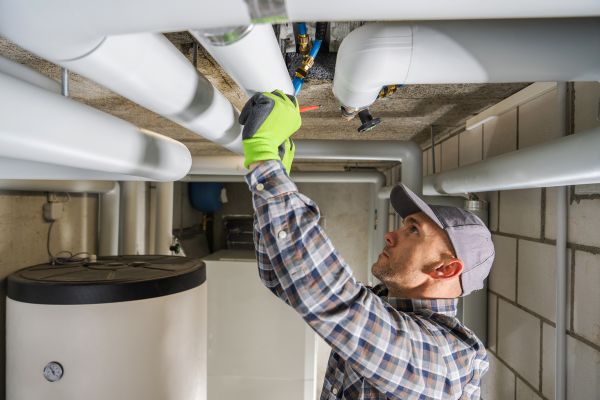Development of property in Singapore or any other city is a highly competitive industry and errors can cost your company money. No matter whether you are new or experienced developer, knowing which mistakes to avoid will increase success for both. Here are our top tips for property development to help avoid the most commonly seen pitfalls.
Hoi Hup Realty and Sunway joined forces to develop The Continuum. Established in Singapore since 1983, Hoi Hup Realty’s real estate development experience spans various real estate related businesses; over the last four years this group has actively acquired land through government land sales as well as through an en bloc exercise.
Hoi Hup Realty have completed several developments prior to introducing The Continuum Condo Condominium complex. These projects include Waterford Residence, Sophia Hills at Mount Sophia, The Continuum Showflat, Whitley Residences and soon-to-be Terra Hill in Pasir Panjang.
Lack of Research
Although the phrase ‘location, location and location’ may have become cliche in real estate development circles, its true significance in sales success should never be discounted. Finding development properties situated strategically is essential.
At no other time has there been a better opportunity to conduct in-depth research. With property applications that allow users to identify costs, crime rates and local services available nearby, as well as talking directly with locals and experts for additional insights about new areas as well as any negative influences they might be exposed to in future developments.
As part of your research on an area, take the following into consideration:
- Check league tables of local schools – verify data accuracy by consulting these tables.
- Employment Opportunities In both the present and the future, opportunities exist for employment.
- Parking facilities – particularly alternatives to street parking
- Traveline offers an all-in-one transportation solution.
- Leisure facilities – parks, green spaces, sports facilities etc.
Before making substantial modifications to your property, it is wise to establish whether planning permission is needed before purchasing it. It is vitally important that we consider:
- Building status has been listed.
- Recent applications and results of local planning applications
- Local authorities conduct searches.
- Search Results for Environmental Water drainage search.
Additional searches that are location dependent, such as mining explorations.
Successful research should involve seeking advice from professional advisors as well as getting acquainted with locals.
Underestimating Costs
Even with the most impressive marketing and materials assets, they cannot generate a profit if your expenses have been underestimated. Before embarking on any project, calculate both minimum and maximum costs as well as setting aside some contingency funds. Since costs can change with any project as it develops, set aside regular times to revisit your estimates to keep a precise picture of expenses.
All decorating and construction costs should be listed with exactitude. Doing this makes budgeting and purchases much simpler in the future.
More property development tips
Property development has some common, hidden costs:
- Legal costs
- Materials wastage – particularly when using reclaimed materials
- Service connections
- Site office and lock-up facilities
- Lenders’ valuation and survey fees
- Stamp duty and Land Registry fees
- Non-recoverable VAT on some purchases including equipment hire and delivery charges
As you evaluate the cost of developing your property, be conscious of your own time and costs when calculating development expenses. Remember that any time spent working on an investment property means time away from earning money elsewhere; make sure it fits within your budget plan and consider hiring an experienced project manager as part of this investment decision.
Neglecting Your Team
Neglecting Your Team Selecting the appropriate company to develop your property is crucial to its success, so plan to pay premium rates for contractors with outstanding references.
Be mindful to foster good connections; this will allow you to build a network of reliable contractors for future projects. When considering potential contractors, thoroughly examine references and check examples of work before accepting them; fixed-price contracts should always be insisted upon.
Engaging a skilled project manager is an excellent way to ensure an efficient team, since they already possess an established network within your industry.
Cutting Costs
As your project expands and your budget tightens, it may become tempting to cut costs by purchasing inferior quality products at discounted rates. While searching for these bargains is acceptable, potential purchasers may be put off by their poor fittings and finish.
Consider elements with longevity when purchasing property.
Keep in mind that the exterior of a building is just as important as its interior; buyers often make decisions on purchasing homes before even entering them.
The key factors affecting a buyer’s decision include:
- Door and window quality
- Flooring choices
- Kitchen design and finishes
- Taps and bathroom fittings
- Temporary furnishings chosen to ‘dress’ a room
Failing to Control Cash Flow
Prior to beginning any project, cash flow needs to be considered carefully. No matter if using an expert cash flow management tool like Cash Calc or your spreadsheet experience alone – your project’s success or failure depends largely on the decisions regarding cash flow decisions you make.
Cash shortages may cause contractors to come to a standstill or consider expensive last-minute loan alternatives, and when it comes to property development it is crucial that contractors remember that your money is at stake; even if their project has had previous successes do not make the mistake of postponing essential planning, research, monitoring and finalisation tasks that ensure its success.
Successful property development relies heavily on hard work and an eye for opportunity, although luck plays a part.


